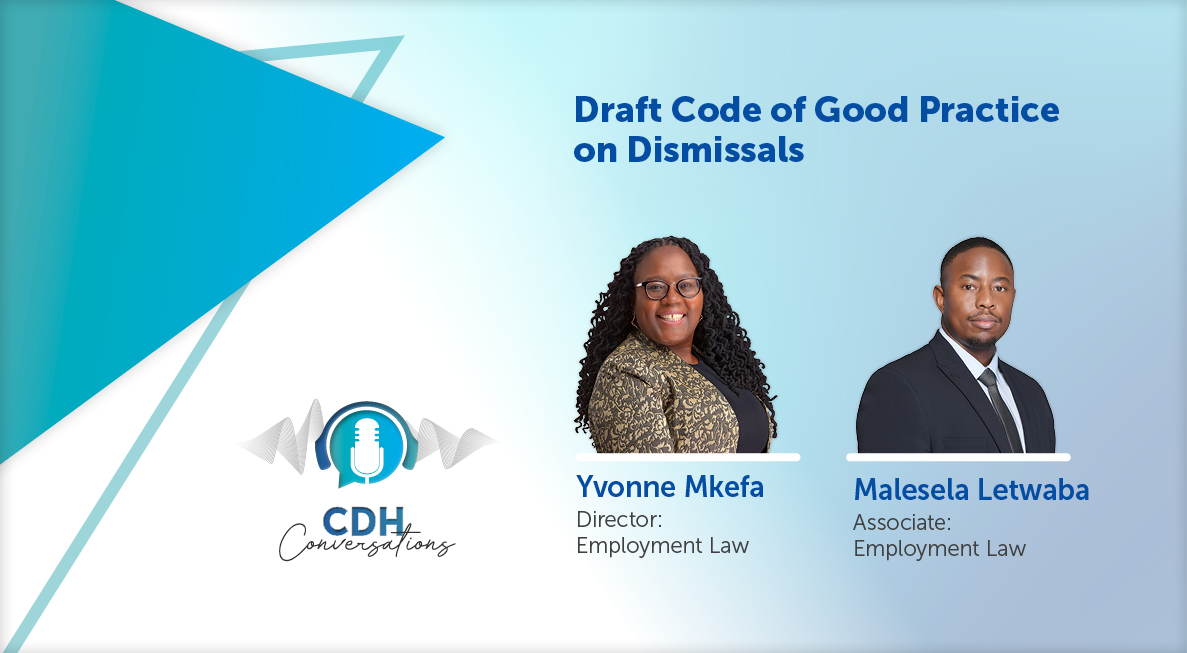Employees behind bars and the constraints on employers
The Labour Appeal Court (LAC) dealt with this question in the case of Samancor Tubatse Ferrochrome v MEIBC (Maloma & Stemmett NO) [2010] JOL 257 48 LAC. The case concerned an employee who was arrested on suspicion of having committed an armed robbery and incarcerated. Ten days after his arrest, he received a letter informing him that he had been dismissed for incapacity. The employee remained in custody for approximately five months and upon his release, referred an unfair dismissal dispute to the Bargaining Council.
The Commissioner ruled that his dismissal was procedurally and substantively unfair and ordered his reinstatement. The matter was taken on review to the Labour Court (LC) by the employer. The LC agreed with the Commissioner that incapacity is confined to ill health, injury or poor performance. In the LC’s view, the true reason for the employee’s dismissal was misconduct for unauthorised absenteeism and not incapacity. As the employee was not the cause of his incarceration, it was a factor beyond his control and it could not be said that he was absent without authorisation.
On appeal, the LAC found in favour of the employer, holding that the definition of incapacity was wider than that asserted by the LC as:
“Incapacity may be permanent or temporary and may have either a partial of complete impact on the employee’s ability to perform their job. The Code of Good Conduct Dismissal: conceives of incapacity as ill health or injury but it can take other forms. Imprisonment and military call up for instance incapacitate the employee from performing his obligations under the contract…”
The LAC therefore concluded that the LC had erred in classifying the matter as misconduct instead of incapacity. The LAC noted further that the fairness of a dismissal, depends on the facts of the case before it. An employer should consider the reasons for the incapacity, the length of the incapacity (the period of incarceration) and whether there are any alternatives to dismissal available.
Having regard to the facts of this case, it was not reasonable to expect the employer to hold a position (of furnace operator in the mining sector) vacant for an indefinite period, especially where in this case, the position was integral to the organisation.
Regarding procedural fairness, the LAC noted that merely sending a dismissal letter to the employee containing the reasons for his dismissal, whilst he was in prison, was procedurally unfair on the basis that the employee was not afforded an opportunity to be heard. The employee’s dismissal was thus found to substantively fair but procedurally unfair and he was awarded six months’ remuneration as compensation.
The LAC’s findings on incapacity were later confirmed by the Supreme Court of Appeal.
Given the above, an employer who is faced with employees who are incarcerated for a substantial or indefinite period, should first consider alternatives to dismissal, such as the recruitment of temporary personnel. If, the recruitment of temporary personnel is not possible, or the position is such that it requires permanent employment, an employer may seek dismissal on the basis of incapacity.
When relying on dismissal on the basis of incapacity, the employer must also ensure that procedural fairness is maintained. This entails affording the employee the opportunity to be heard. This could be done either at an incapacity hearing prior to incarceration, by means of a hearing held at the place of incarceration or by inviting the employee’s legal representative or shop steward to make written submissions on their behalf.
The information and material published on this website is provided for general purposes only and does not constitute legal advice. We make every effort to ensure that the content is updated regularly and to offer the most current and accurate information. Please consult one of our lawyers on any specific legal problem or matter. We accept no responsibility for any loss or damage, whether direct or consequential, which may arise from reliance on the information contained in these pages. Please refer to our full terms and conditions. Copyright © 2026 Cliffe Dekker Hofmeyr. All rights reserved. For permission to reproduce an article or publication, please contact us cliffedekkerhofmeyr@cdhlegal.com.
Subscribe
We support our clients’ strategic and operational needs by offering innovative, integrated and high quality thought leadership. To stay up to date on the latest legal developments that may potentially impact your business, subscribe to our alerts, seminar and webinar invitations.
Subscribe



